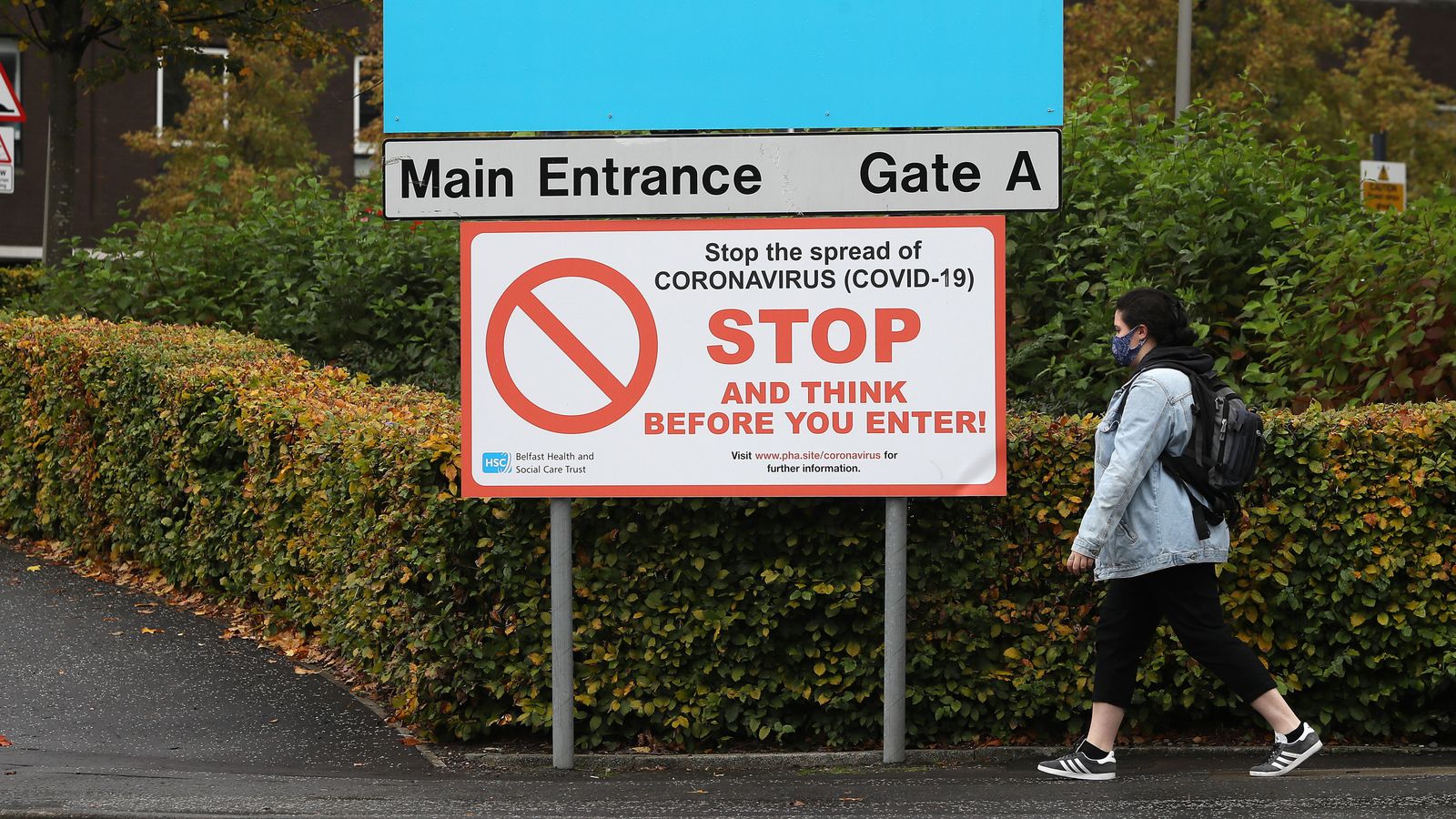The UK has recorded 33,869 new COVID-19 cases and a further 166 coronavirus-related deaths in the latest 24-hour period, according to government data.
The figures compare with 35,077 COVID-19 infections and 33 fatalities reported yesterday, and 34,526 cases and 167 deaths recorded this time last week.
The number of people in hospital with the disease stands at 6,747, the latest data shows, slightly down from 7,038 seven days earlier, with 769 of those on ventilators.
A total of 48,994,530 people in the UK have now received a first dose of a coronavirus vaccine after 37,671 had their first jab on Monday.
And 45,021,381 have been double jabbed after 29,337 people received their second dose.
The government is not providing a vaccination uptake percentage for the country at the moment as it is working on including 12-15 year olds in the figures.
Boris Johnson has said the latest coronavirus data suggests there is no need to deviate from his “plan A” for England.
That means relying on the booster programme plus test and trace – as opposed to “plan B” which could involve compulsory masks, social distancing and other measures outlined in the government’s winter plan.
He also warned that those who refuse to come into the workplace risk being “gossiped about” by their colleagues.
The prime minister told LBC Radio: “We have got to be humble in the face of nature and we have got to recognise that the disease, or a new variant or another pandemic, could always hit us.
“The data that I see at the moment is very clear that we are right to stick to plan A, which is what we are on.”
Meanwhile, Chancellor Rishi Sunak on Monday defended tax rises and stressed the need to “fix” the nation’s finances as the economy emerges from the COVID-19 pandemic.
“Our recovery comes with a cost,” he declared.
In other news, it has emerged that coronavirus infections were reportedly apparent in China much earlier than was initially thought.
Analysts from cyber security consultancy Internet 2.0 found “notable, significant and abnormal” purchases of PCR lab equipment in the second half of 2019, according to a report seen by The Telegraph.
Spending in the Hubei Province on PCR equipment nearly doubled to £7.8m in 2019 from £4m in 2018 and £3.3m in 2017, according to the report.
These products are critical in tracking COVID infections.
Follow the Daily podcast on Apple Podcasts, Google Podcasts, Spotify, Spreaker
China’s uplift in spending began as early as May 2019 – seven months before it alerted the World Health Organisation about the virus.
In their report, experts said: “We have come to the conclusion that, based on the data analysed, it suggests the virus was highly likely to be spreading virulently in Wuhan, China, as early as the summer of 2019 and definitely by the autumn.”
